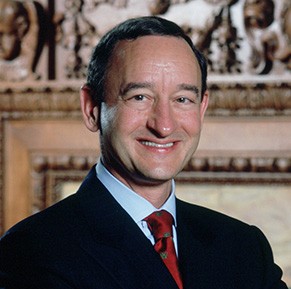Dear members of the Washington University community,
As the calendar year comes to a close, I find myself reflecting on how 2015 began, with hundreds of members of our community coming together in February to explore issues related to race, racism, diversity and inclusion. During our Day of Discovery and Dialogue, we had candid and very difficult conversations. We learned from one another. And we became more sensitized to the fact that we have deep divides within our community, both at the university and in the St. Louis region around us. At that time, I shared that closing those divides and making more and faster progress is an important objective for our university. Looking forward to the New Year, I have been taking stock on where we were, how far we have come, and how far we must go.
We have to approach these challenges with a long-term view. As a research university, for example, we can strengthen the pipeline of diverse candidates for faculty positions by expanding our Chancellor’s Fellows Program, a program for diverse graduate students interested in pursuing academic careers. We also can create new pipeline programs to advance our progress. But, we cannot wait for the pipeline to grow. We need to be proactively identifying and recruiting a more diverse faculty, right now.
Countless staff, faculty, administrators, and students have worked tirelessly to improve our campus climate. There has been positive impact from our work. A sampling includes:
- Increasing matriculation of Pell grant-eligible undergraduate students from 5% three years ago to greater than 11% this year and increased matriculation of African-American and Latino undergraduate students to 9% and 8% this year;
- Increasing the number of black faculty by 50% in the last five years, though we began from a low base;
- Increasing the number of women in leadership roles, with women now representing 13 out of 29, or over 40%, of the university’s most senior leaders, the University Council. Women also lead two large academic units, the Faculty of Arts & Sciences and the Department of Medicine;
- Launching a pilot first-year undergraduate course, Identity Literacy, which deepens students’ awareness of the difference identity can make in how people interact with each other, and through the Gephardt Institute engages students in the St. Louis community;
- Funding close to $1 million in grants to support staff- and faculty-generated diversity initiatives throughout the university, including innovative minority pipeline academic and hiring programs that are now permanent in the School of Medicine, University Libraries, Olin School of Business and Kemper Art Museum.
- Increasing the staff and reach of our new Center for Diversity and Inclusion, which is focused on cultivating a supportive campus climate for students of all backgrounds cultures and identities; and
- Enhancing efforts to become more inclusive, such as our new preferred name policy, gender inclusive residence halls, Safe Zones training, and formalizing recognition of the LGBT Committee advising Provost Holden Thorp.
Against this backdrop of progress, our collective imperative now is to sustain our momentum. Two significant milestones this year will help better focus our efforts. First, the report of the Steering Committee on Diversity and Inclusion, which brought forward twelve recommendations and, second, in response to the recommendations a Commission on Diversity and Inclusion has been formed, tasked with working with the administration to implement the recommendations of the Steering Committee. I am proud that the work of the Steering Committee was a direct outcome from our Day of Dialogue and Discovery, and the Commission is already at work focusing on implementing recommendations, not further studies.
Chaired by Vice Provost and William M. Van Cleve Professor of Law Adrienne Davis, the Commission is made up of faculty, students and staff representing a broad range of perspectives. The Commission is structured around working groups that reflect the action items. In January, the working groups will commence their work, initially focusing on staff diversity, diversity training, university-wide engagement and dialogue, monitoring and reporting progress, and recognizing leadership and impact in achieving diversity.
During the upcoming spring semester, each working group will hold a discussion session open to all members of our university community, when you can become more familiar with the work and engage in the process. At any time, your input is welcome via email to diversity@wustl.edu.
I am heartened, but not satisfied, by our progress. Great universities tackle and solve great problems. And that is what we will continue to do. Effort to build a more diverse, inclusive and supportive environment for all who work and study here is a top priority.
I wish everyone all the best for the new year ahead.
Sincerely,
Mark S. Wrighton
Chancellor
